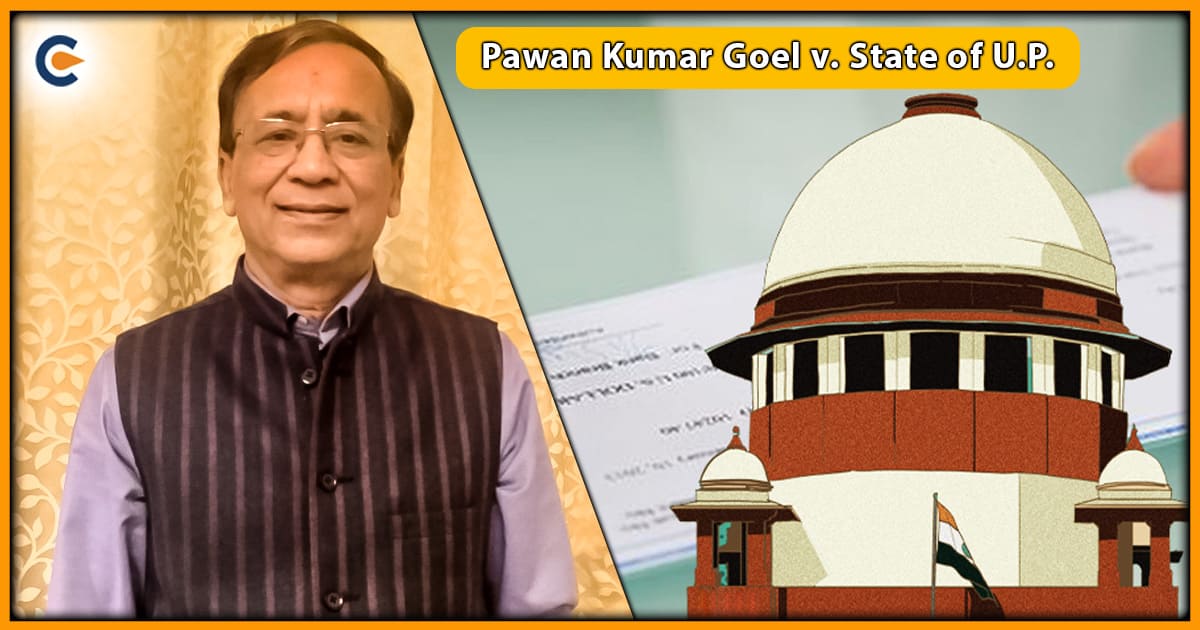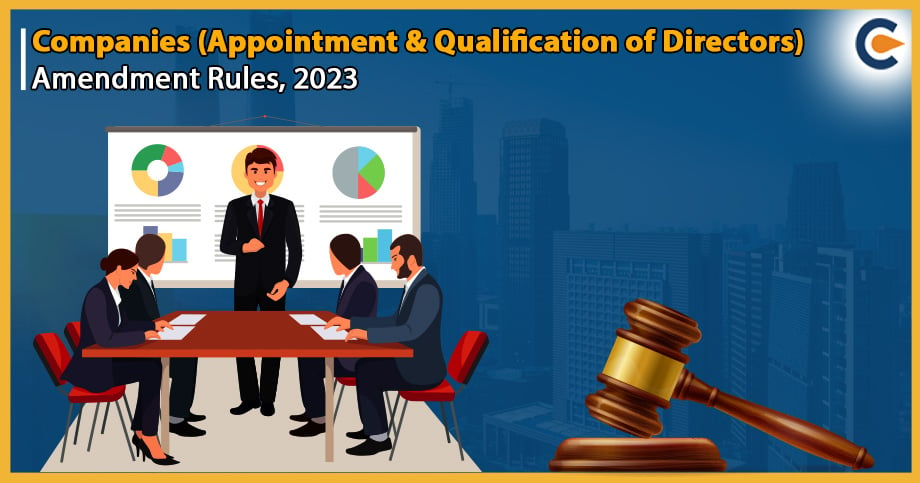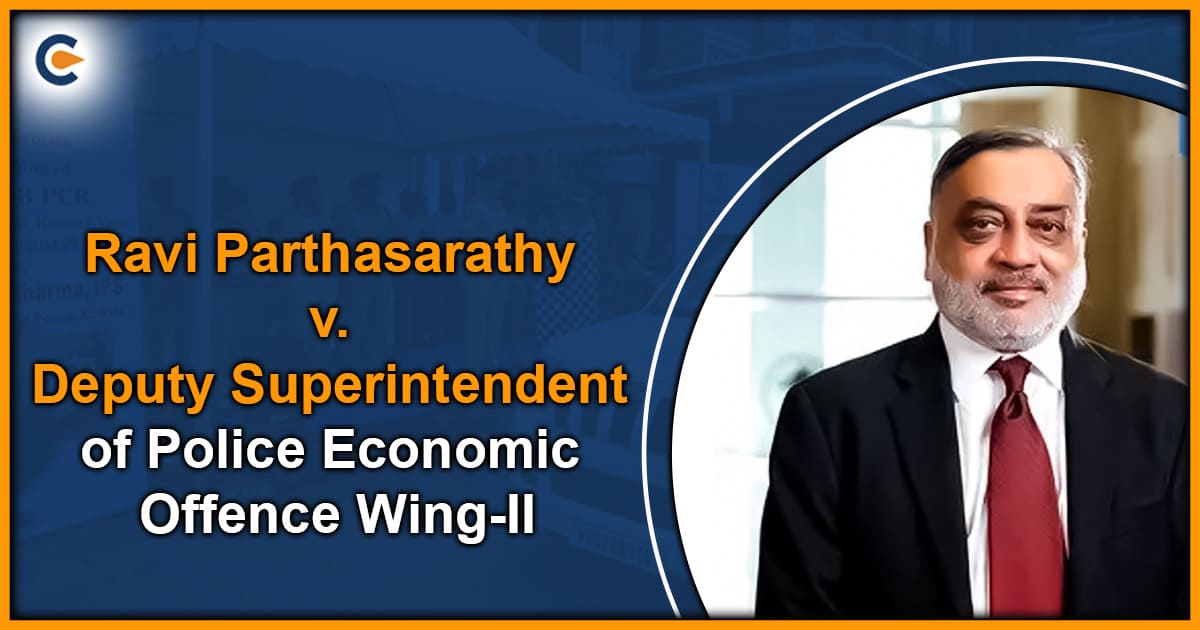The Director of a Co. Can’t be Prosecuted Vicariously for cheque Bounce if Co. is Not Charged as Accused: Supreme Court
The case of “Pawan Kumar Goel vs. State of U.P.” in the Supreme Court centres on the matter of adding an accused party pertaining to a complaint lodged under Section 138 of the Negotiable Instruments Act (N.I. Act) after the time limit for doing so has elapsed. The case raises important questions regarding the permissibility of adding an additional accused and the requirement to include the company as an accused in such complaints.
In this case, the primary contention is whether it is legally valid to implead an additional accused after the limitation period for taking cognizance of the offense has lapsed. The Appellant argues that the inclusion of an additional accused can occur at a later stage. While the respondent asserts that such impleadment is prohibited by the limitation period prescribed under the N.I. Act.
In this case, the Supreme Court’s decision holds significant implications for the legal interpretation and application of the N.I. Act. It emphasizes the significance of complying with the provisions of the prescribed period of limitation, emphasizing that the addition of an additional accused is not permissible once the limitation period has expired. Furthermore, the Court emphasizes the necessity of arraigning the company as an accused in complaints filed under Section 138 of the N.I. Act, stating that the failure to do so is fatal to the complaint.
The Court’s ruling also clarifies the concept of vicarious liability, asserting that individuals can only be held accountable if they were in charge of and responsible for the company’s business at the time of the offense. Mere directorship does not automatically establish liability; conversely, an individual can be held accountable for the company’s conduct without being a director.
Ultimately, this case serves as an important precedent for the subsequent impleadment of accused parties in complaints filed under the N.I. Act and sheds light on the requirements for establishing vicarious liability in such cases.
Case Background
The “Pawan Kumar Goel vs State of U.P.” case deals with a legal dispute related to the subsequent impleadment of an accused within a complaint submitted under Section 138 of the Negotiable Instruments Act. (N.I. Act) after the expiration of the limitation period.
Section 138 of the N.I. The Act pertains to the dishonor of cheques and provides for penalties and prosecution in cases of non-payment. The section imposes criminal liability on the person who draws a dishonoured cheque due to insufficient funds or other reasons.
In this case, a complaint was filed under Section 138 of the N.I. Act against the Appellant, Pawan Kumar Goel. The initial complaint did not include any other accused apart from Goel. However, at a later stage, an application was filed to implead an additional accused in the complaint.
The issue at hand was whether it was legally permissible to include an additional accused in the complaint after the limitation period for taking cognizance of the offense had expired. The Appellant put forth the argument that the addition of another accused could occur at any point, even after the statute of limitations has expired. Conversely, the respondent argued that the limitation period serves as a restriction on the subsequent inclusion of accused individuals.
The Supreme Court was presented with the case to ascertain the legality of including an additional accused party in a complaint filed under Section 138 of the Negotiable Instruments Act (N.I. Act) after the expiration of the limitation period. The Court’s decision would have significant implications for the interpretation and application of the N.I. Act in similar cases.
Brief Facts
- Appellant and Respondent No. 2 had business dealings.
- Respondent No. 2 is the director of Ravi Organics Limited.
- Ravi Organics Limited had a running account with the Appellant.
- Respondent No. 2 issued a cheque to the Appellant for the supply of materials.
- The cheque was dishonored when presented.
- The Appellant sent a legal notice to Respondent No. 2 but has yet to receive a response.
- The Appellant filed four criminal complaints under Section 138 of the Negotiable Instruments Act.
- Complaints alleged that the cheque was dishonored due to exceeding the agreed-upon arrangement.
- The Magistrate took cognizance of the complaints and scheduled the Appellant’s statement recording.
- The Appellant filed an affidavit requesting that the affidavit be considered their statement.
- Summon orders were issued for Respondent No. 2.
- Respondent No. 2 filed a criminal revision petition before the Sessions Court, challenging the summoning order.
- The Sessions Court dismissed the revision petition, considering the cheque as arising from commercial transactions between the parties.
- Respondent No. 2 filed a writ petition before the High Court of Allahabad.
- The High Court allowed the writ petition and quashed the summon orders passed by the Magistrate and the order of the Sessions Court.
Contentions of the Appellant
The Appellant argued that the inclusion of Respondent No. 2 as a Director in Ravi Organic Limited was a result of a typographical error, leading to the company not being named as Accused No. 2 in the complaint. Furthermore, the Appellant asserted that all relevant information regarding the company was provided in the description of Accused No. 1. The Appellant further contended that neither the National Investigation Agency[1] (NIA) nor the Criminal Procedure Code, 1973 contains any provisions prohibiting the amendment of the complaint or the addition of other accused parties.
Contentions of Respondent No. 2
The contention put forth was that the proceedings would not be considered maintainable due to the absence of the company being named as an Accused in the complaint. It was argued that for a complaint involving a cheque issued from the company’s account, the complainant must explicitly state that the Accused was responsible for the company’s affairs at the time the offense was committed. It was further asserted that this defect in the complaint cannot be rectified or cured.
Supreme Court Held
The Supreme Court made the following determinations:
- According to Section 141 of the Negotiable Instruments Act, vicarious liability is imposed by deeming fiction. This means that for individuals mentioned in subsections (1) and (2) of Section 141 to be convicted, the company or firm must have committed the offense as the principal accused. If the company or firm has not committed the offense, the individuals cannot be held liable based on the principles of vicarious liability.
- In order to uphold a prosecution under Section 141 of the Negotiable Instruments Act, it is crucial to incorporate the company as a defendant. Failure to include the company as an accused is fatal to the complaint.
- The argument put forth by the Appellant’s counsel that an additional accused can be added after the filing of the complaint is not valid if the limitation period for taking cognizance of the offense under Section 142 of the Negotiable Instruments Act has expired.
- If, during the relevant period, an individual was in control of and accountable for the company’s operations, they may face vicarious liability in a prosecution under the Act. Mere directorship does not automatically fulfill both prerequisites for liability. Conversely, a person can only assume control and responsibility for the company’s affairs if they hold the position of a director.
- However, suppose the allegations in the complaint fail to explicitly or implicitly indicate that the accused individual was in charge of and responsible for the company’s conduct at the time of the offense. In that case, it can be inferred that the requirement of Section 141 is not met. In such instances, the complaint against the accused should be dismissed.
Conclusion
The Supreme Court case of “Pawan Kumar Goel vs. State of U.P.” dealt with the issue of subsequent impleadment of an accused within a complaint submitted under Section 138 of the Negotiable Instruments Act. (N.I. Act) after the limitation period had expired. The Court held that the limitation period acts as a bar to adding accused once it has lapsed. The Court emphasized that the company must be included as an accused in complaints under Section 138 of the N.I. Act and the failure to do so renders the complaint fatally defective. The Court clarified that vicarious liability could only be established if the individuals were in charge of and responsible for the company’s business at the time of the offense, regardless of their directorship. The case sets an important precedent regarding the subsequent impleadment of accused parties under the N.I. Act and sheds light on the requirements for establishing vicarious liability in such cases.
Read our Article: A Closer Look At The Serious Fraud Investigation Office V. Rahul Modi Case











